
Seweryn Goszczyński
Seweryn Goszczyński (1801-1876) was a Polish Romantic prose writer and poet.
Goszczyński did not receive a thorough education because his parents were not well off. He studied with breaks in different schools, the Basilian School in Uman being the one where he stayed the longest period of time. At this school he made friends with Zaleski and Grabowski. In 1820 he moved to Warsaw, where he joined the secret Union of Free Polish Brothers. On hearing the news about the outbreak of the insurrection in Greece, in August 1821, he walked to Ukraine in order to get to the fighting rebels via Odessa. Due to the lack of funds he stopped in Ukraine where he remained till 1830, engaging in conspiratorial activities. He frequently changed his lodging as
If you like author Seweryn Goszczyński here is the list of authors you may also like
Buy books on AmazonSeweryn Goszczyński similar authors
-
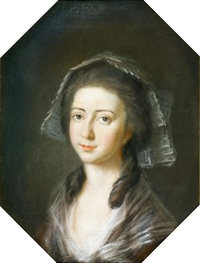
Maria Wirtemberska
Maria Wirtemberska, właśc. Maria Anna z Czartoryskich księżna von Würtemberg-Montbéliard, inne formy nazwiska: de Wirtemberg; Wirtembergska; Würtemberska; von Württemberg, pseud.: La Princesse W*** – arystokratka polska, powieściopisarka, komediopisarka, poetka i filantropka.
Buy books on Amazon -
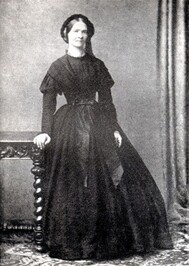
Narcyza Żmichowska
A Polish novelist and poet. She is considered to be one of the precursors of feminism in Poland. Also known under her popular nom de plume Gabryella.
Buy books on Amazon
Żmichowska's first novel published in 1846 was Poganka (The Heathen), in which she is known to have expressed interest in her friend Paulina Zbyszewska. The book was published by Northern Illinois University Press in 2012 in English translation by Dr Ursula Phillips. Letters to friends and family written by Żmichowska were published in five volumes by Wrocław University in 1960. There, she also expressed interest in a married man, Edward Dembowski, which led to a known scandal. Her correspondence with Bibianna Moraczewska (an unmarried woman by choice like Narcyza) spanning 32 years consisted m -

Juliusz Słowacki
Juliusz Słowacki ['juljuʂ swɔ'vatski] (4 September 1809 in Kremenets, Volhynia, Russian Empire now in Ukraine – 3 April 1849 in Paris) was a noted Polish Romantic poet, considered to be one of the "Three Bards" of Polish literature. His works often feature elements of Slavic pagan traditions, mysticism, and Orientalism.
Buy books on Amazon
Life and work
Influenced largely by Byron and Shakespeare, Słowacki's early work was often historical in nature, combining exotic locales (as in Arab) and tragedy (as in Maria Stuart). His work took on a more nationalist tone following the failed November Insurrection of 1830 - 1831. Like many of his countrymen, he decided to emigrate to France as a political refugee. Ironically, the first collections of poems he produced in -
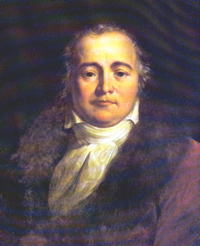
Julian Ursyn Niemcewicz
Polish poet, playwright and statesman. He was a leading advocate for the Constitution of May 3, 1791.
Buy books on Amazon -

Eliza Orzeszkowa
Eliza Orzeszkowa was a Polish novelist and a leading writer of the Positivism movement during foreign Partitions of Poland. In 1905, together with Henryk Sienkiewicz she was nominated for the Nobel Prize in Literature.
Buy books on Amazon -
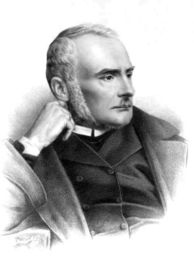
Zygmunt Krasiński
Tradition ranks Napoleon Stanisław Adam Ludwig Zygmunt Krasiński, a Polish count, with Adam Mickiewicz and Juliusz Słowacki as one of three national bards of great Romantic poets, who influenced national consciousness during the period of political bondage of Poland.
Buy books on Amazon
A mother bore Krasiński, a son, to Wincenty Krasiński, a general and count of the aristocratic family. He studied law at Warsaw University and in Geneva, where he met Adam Mickiewicz.
Krasiński compared as more sociopolitical conservative than the other two poets. He published much of his work anonymously.
People best know him for his philosophical messianist ideas. His drama, Nie-boska Komedia ( The Un-Divine Comedy , 1835), portrays the tragedy of a new order of Communism and -
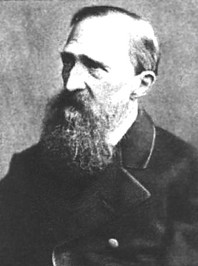
Józef Ignacy Kraszewski
Józef Ignacy Kraszewski was a Polish writer, historian and journalist who produced more than 200 novels and 150 novellas, short stories, and art reviews (including painters, e.g., Michał Kulesza). He is best known for his epic series on the history of Poland, comprising twenty-nine novels in seventy-nine parts.
Buy books on Amazon
As a novelist writing about Polish history, Kraszewski is generally regarded as second only to Henryk Sienkiewicz. -

Cyprian Kamil Norwid
Polish poet, dramatist, prosaist, essayist, philosopher, painter and sculptor. An outsider, despite his acquaintance with the famous - Chopin, Mickiewicz, Słowacki and Krasiński, he remained underestimated to be finally appreciated in the XX century. Censorship in partitioned Poland forced him to live in Paris. His work included hundreds of poems, some prose, dramas, sketches, paintings and sculptures. His early unfulfilled love formed his style, full of sensitivity. Since then he was mostly lonely, with the first of two other known romances occurring at age of 47. His main interests were writing style, polish society and morality. He spent all money on works of art and journeys to live in London, Berlin, New York and, mostly, Paris.
Buy books on Amazon -

Bolesław Prus
Bolesław Prus (pronounced:[bɔ'lεswaf 'prus]; Hrubieszów, August 20, 1847 – May 19, 1912, Warsaw), whose actual name was Aleksander Głowacki, was a Polish journalist and novelist who is known especially for his novels The Doll and Pharaoh. He was the leading representative of realism in 19th-century Polish literature and remains a distinctive voice in world literature. Głowacki took the pen name "Prus" from the name of his family coat-of-arms.
Buy books on Amazon
An indelible mark was left on Prus by his experiences as a 15-year-old soldier in the Polish 1863 Uprising against Imperial Russia, in which he suffered severe injuries and imprisonment.
In 1872 at age 25, in Warsaw, Prus settled into a distinguished 40-year journalistic career. As a sideline, to augment -

Adam Mickiewicz
To a Pole, the name Adam Mickiewicz is emblematic of Polishness and greatness. What Homer is to the Greeks, or Shakespeare to the English, Mickiewicz is to the Poles. He is a cultural icon, a name inextricably connected with Polish literature and history, and one mentioned with pride. Mickiewicz stands out in the consciousness of Poles both as a man of letters and a political leader.
Buy books on Amazon
Despite his unquestionable status and fame, however, much of Mickiewicz's biography is shrouded in mystery. Even the generally accepted date of his birth, December 24. 1798, is uncertain, since it hasn't been determined whether it refers to the Gregorian or the Julian calendar. Nor has it been established conclusively whether Mickiewicz was born in Nowogrodek or -
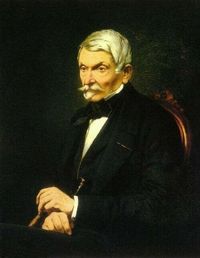
Aleksander Fredro
Aleksander Fredro was a Polish poet, playwright and author active during Polish Romanticism in the period of partitions by neighboring empires. His works, including plays written in octosyllabic verse (Zemsta) and in prose (Damy i Huzary) as well as fables, belong to the canon of Polish literature. Fredro was harshly criticized by some of his contemporaries for light-hearted humor or even alleged immorality (Seweryn Goszczyński, 1835) which led to years of his literary silence. Many of Fredro's dozens of plays were published and popularized only after his death. His best-known works have been translated into English, French, German, Russian, Czech, Romanian, Hungarian and Slovak.
Buy books on Amazon
Source: wikipedia.com -

Tadeusz Konwicki
Prose writer, screenwriter and film director. Founder of the 'cinema d'auteur' in Poland and author of 20 books. Born in 1926 in Nowa Wilejka, near Vilnius (today Naujoji Vilnia, Lithuania), died on January 7th in Warsaw at 88 years old.
Buy books on Amazon
Konwicki was educated at the Universities of Cracow and Warsaw and began writing for newspapers and periodicals. He served on the editorial boards of leading literary magazines and followed the official Communist Party line. His first work, Przy budowie (1950; “At the Construction Site”), won the State Prize for Literature. He began a career as a filmmaker and scriptwriter in 1956; his film Ostatni dzień lata (“The Last Day of Summer”) won the Venice Film Festival Grand Prix in 1958. By the late 1960s he had -

Julian Ursyn Niemcewicz
Polish poet, playwright and statesman. He was a leading advocate for the Constitution of May 3, 1791.
Buy books on Amazon -

Maria Wirtemberska
Maria Wirtemberska, właśc. Maria Anna z Czartoryskich księżna von Würtemberg-Montbéliard, inne formy nazwiska: de Wirtemberg; Wirtembergska; Würtemberska; von Württemberg, pseud.: La Princesse W*** – arystokratka polska, powieściopisarka, komediopisarka, poetka i filantropka.
Buy books on Amazon -

Józef Ignacy Kraszewski
Józef Ignacy Kraszewski was a Polish writer, historian and journalist who produced more than 200 novels and 150 novellas, short stories, and art reviews (including painters, e.g., Michał Kulesza). He is best known for his epic series on the history of Poland, comprising twenty-nine novels in seventy-nine parts.
Buy books on Amazon
As a novelist writing about Polish history, Kraszewski is generally regarded as second only to Henryk Sienkiewicz. -

Narcyza Żmichowska
A Polish novelist and poet. She is considered to be one of the precursors of feminism in Poland. Also known under her popular nom de plume Gabryella.
Buy books on Amazon
Żmichowska's first novel published in 1846 was Poganka (The Heathen), in which she is known to have expressed interest in her friend Paulina Zbyszewska. The book was published by Northern Illinois University Press in 2012 in English translation by Dr Ursula Phillips. Letters to friends and family written by Żmichowska were published in five volumes by Wrocław University in 1960. There, she also expressed interest in a married man, Edward Dembowski, which led to a known scandal. Her correspondence with Bibianna Moraczewska (an unmarried woman by choice like Narcyza) spanning 32 years consisted m -

Miron Białoszewski
Miron Białoszewski – polski poeta, prozaik, dramatopisarz i aktor teatralny.
Buy books on Amazon
Debiutował w krakowskim "Życiu Literackim" w 1955 w ramach Prapremiery pięciu poetów obok wierszy m.in. Herberta, a pierwszy tom jego wierszy, Obroty rzeczy, ukazał się rok później. Następnie wydał tomy poetyckie: Rachunek zachciankowy (1959), Mylne wzruszenia (1961) oraz Było i było (1965).
W 1970 zasłynął jako prozaik - po wydaniu tomu Pamiętnik z powstania warszawskiego, w którym 23 lata po koszmarach wojennych spisał swe przeżycia powstańcze. Niebawem ukazały się dalsze tomy prozy: Donosy rzeczywistości (1973), Szumy zlepy, ciągi (1976) oraz Zawał (1977).
Zmarł 17 czerwca 1983 po kolejnym zawale serca. -
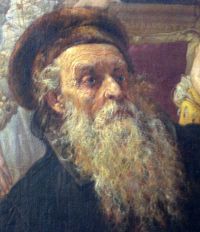
-
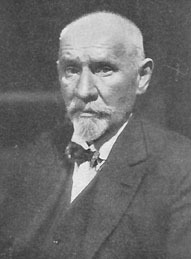
Stanisław Przybyszewski
Pisarz, poeta, dramaturg i publicysta. Urodzony 7 maja 1868 w Łojewie pod Kruszwicą, zmarł 23 listopada 1927 w Jarontach pod Inowrocławiem.
Buy books on Amazon
Rozgłos zdobył w Berlinie, gdzie był jednym z bohaterów międzynarodowego środowiska artystycznego. Opublikował tam m.in. głośny esej "Zur Psychologie des Individuums. I - Chopin und Nietzsche. II - Ola Hansson" 1892 oraz poematy Totenmesse, 1895 (wersja polska Requiem aeternam, 1904), Vigilien, 1895 (wersja polska Z cyklu Wigilii, 1899), De profundis, 1895 (wersja polska 1900), Androgyne, 1900. Zapoczątkował w nich problemy konstytutywne dla całej jego twórczości: indywidualizm, status metafizyczny i społeczny jednostki twórczej, los geniuszy, sens przynależnych im atrybutów "degeneracji" i "choroby". Pr